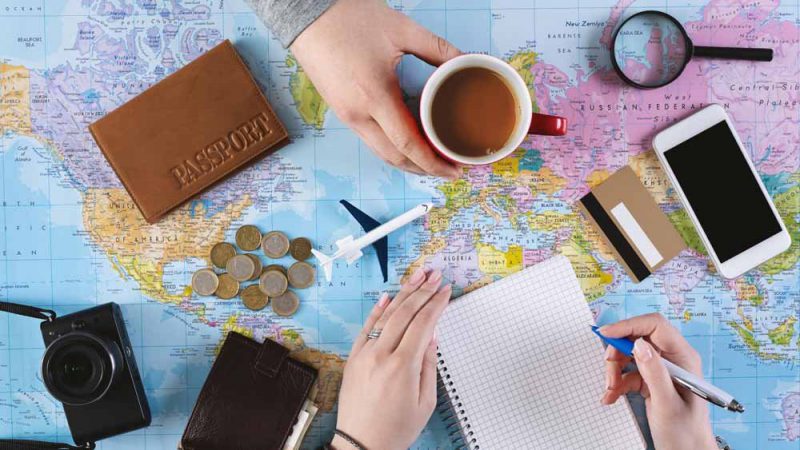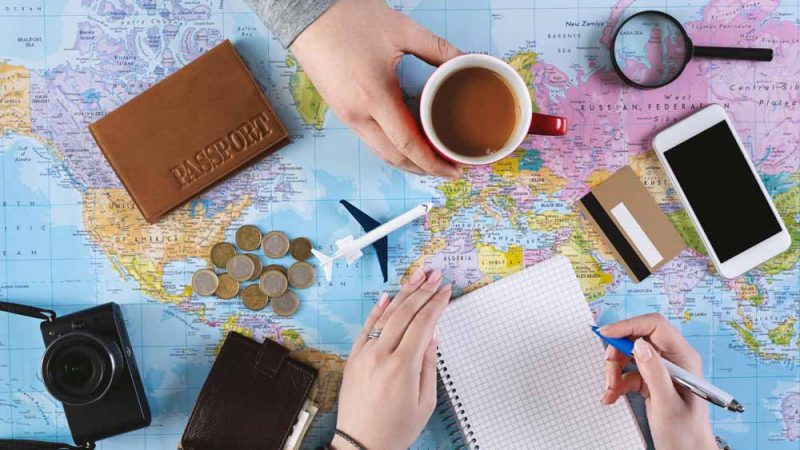Traveler Loyalty Another Coronavirus Casualty
While airlines bend over backwards to accommodate trip cancellations, pesky penalties remain a soar point for those who used rewards points to book
March 31, 2020

Did coronavirus kill travel loyalty? If you ask someone like Joan Skerritt, the answer is “yes.”
Last week, she asked United Airlines to refund an award ticket she’d booked for her daughter to Europe next month. The airline demanded a $125 fee to return the miles.
“United is penalizing its most loyal customers,” says Skerritt, a grant writer from Oak Hill, Va.
It’s hardly an isolated complaint. I’ve received a barrage of them from frequent travelers since the coronavirus crisis began.
True, most companies are pausing their points expirations or reducing requirements for elite status. But these are cynical steps designed to keep you trapped in a loyalty program. There’s little evidence that travel companies are giving their best customers the preferred treatment they’ve always promised them, which at a time like this would be a faster refund or a fee waiver, or something — anything! — to show those customers that they’re valued.
“During this time of crisis — when it matters the most — customers will remember which brands were there for them and which brands were not,” says Phil Seward, a senior vice president of loyalty strategies at Collinson, a loyalty and benefits company. “How brands conduct business during this crisis will impact their brand perception long after things return to normal.”
How travel companies are letting their best customers down
Many travel companies are either sticking it to travelers or leaving them hanging. Jim Wilson, who works for a law enforcement training company in Grapevine, Texas, is worried about maintaining his loyalty status with American Airlines, Hilton and Hertz. If he can’t travel, his status expires and he goes back to being treated like everyone else — tiny seats, indifferent service, a fee for everything.
He’s asked his preferred companies how they would help loyal travelers like him, post-coronavirus. “They haven’t responded yet,” he says.
If I had to bet, I’d say they’ll eventually get back to him, telling him his status is safe and that his money is still welcome there. But really, is giving your top customers the silent treatment any way to reward their loyalty?
The benefits of loyalty are “minimal”
Companies are showing virtually no preferential treatment to their frequent guests, according to loyalty program members. That’s just fine with Dean Kato, a business consultant from Kirkland, Wash. He’s a gold-level frequent flier on Alaska Airlines. He says during normal times, the airline lavishes him with perks, such as fee waivers and upgrades. But during the coronavirus crisis, he feels kind of ordinary.
“They are treating all travelers fairly at this time,” he says. “The preferences shown to frequent flyers today may be minimal.”
Other frequent travelers say they’ll remember this episode.
“Guests vote with their feet,” says Andy Abramson, a frequent traveler who owns a communication company in Los Angeles. “They’ll walk in the direction of the hotel that treated them right — and away from the one that didn’t let them out of the reservation.”
Maybe the pandemic has exposed loyalty programs as the sophisticated, soulless marketing programs they are. They’re nothing more than an insidious way to coerce frequent travelers to fork over their hard-earned dollars to one company. The loyalty only goes one way.
Is this the end of travel loyalty programs as we know them?
Experts say we may be witnessing the end of frequent flier and frequent stayer programs as we know them. Loyalty programs had already begun shifting away from collecting points and toward a relationship that “enables a better experience,” says Dave Andreadakis, chief strategy officer at Kobie, a loyalty marketing company. “This crisis, like all crises, will cause us to take inventory of our relationships and determine what we really want out of them.”
That makes a lot of sense. Loyalty — true loyalty — isn’t about how many points you have or the color of your card. It’s about trust. And it’s about a relationship. That relationship has been tested in recent weeks, and too many travel companies are failing the test.
By the way, Skerritt, the woman who was stuck with a fee for redepositing her miles on United, didn’t even need to wave her elite card to fix her problem. The airline canceled her daughter’s flights. That automatically required the airline to refund her miles without a charge, or face the wrath of the Department of Transportation. Even so, it wasn’t easy.
“After being on hold for 1 hour 45 minutes, I was able to get all the miles put back on the loyalty accounts for no fee,” she says.
How to leverage what’s left of your loyalty
Offer your future business. When you’re trying to negotiate a refund or credit because of coronavirus, your intentions matter more than the color of your elite card. “Try saying something like, ‘I’m loyal to your brand and would hate to reconsider working with you in the future,’” says Molly Fergus, general manager of TripSavvy, a travel site.
Take a credit instead of a refund. Real loyalty means you will fly on an airline or stay in a hotel soon. Instead of taking a refund, ask for a credit. But make sure you request something in exchange, like a lower rate or an upgrade, if the company doesn’t automatically offer you an additional benefit. Remember, though, that credits expire after a year.
Leave while you still can. Many loyalty programs offer status matching, which allows you to transfer your status to a competitor. If a company has done you wrong during the coronavirus crisis, take your business elsewhere. You could also stop playing the loyalty game entirely and start booking airline tickets and hotel rooms that make sense, as opposed to the ones that get you the most points. That is, when we get the “all clear” to resume travel.
Christopher Elliott’slatest book is “How To Be The World’s Smartest Traveler” (National Geographic).




